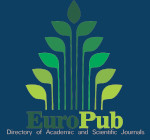Juventude ativa: protagonismo juvenil em prática na educação não formal
DOI:
https://doi.org/10.17648/diversitas-journal-v6i1-1418Abstract
ABSTRACT: Non-formal education enables learning for citizenship formation, so that individuals understand their political rights and act with a view to changing the status quo in their community. Amid this scenario, youth protagonism is specifically about young people who appropriate their rights and use them to change society. The objective of this research was to understand the educational practices aimed at youth protagonism in a non-formal educational institution. It is characterized as an ethnographic research carried out at Coletivo Mulher Vida (CMV), a non-governmental institution located in Olinda, Pernambuco, Brazil, through participant observation in the formative process called "Culture of Peace", with adolescents aged 12 to 15 years old, and “Rede Mobilização Jovem de Olinda” (RMJO) with the presence of young people aged 15 to 20 years old. In addition, a document analysis was carried out on documents provided by the institution. The procedures were developed with ethical care through an institutional consent term. It was obtained as results that young people are considered as part of the solutions of the social problems, since in the institution there is the formation of adolescents and young people to act in the communities, besides the plenary sessions for the youth mobilization, which are thought, discussed and placed in practice by them, who demonstrate self-confidence, building knowledge through the exchange of experiences. This occurs through active listening and without punitive or inhibitory attitudes. It was identified that the institution's vision for youth protagonism starts from an incentive to autonomy based on the development of being for society, with the empowerment content about its own existence and the social context in which it is inserted. This study has its relevance because it is a concrete experience that allows reflection for professionals in the areas of education and humanities. Likewise, suitable as an example and basis for formal and non-formal educational institutions.
KEYWORDS: social participation, citizen education, youth autonomy.
Metrics
References
ADOLESCENTES e jovens são 28% da população mundial; ONU pede mais investimentos. ONUBR, 2014. Disponível em:https://nacoesunidas.org/adolescentes-e-jovens-sao-28-da-populacao-mundial-onu-pede-mais-investimentos/amp/.Acessoem: 06 out. 2019.
ANDRÉ, M. E.D. A. de. Etnografia da prática escolar. [S.I: s.n], Papirus, 2009.
BRASIL. Lei n. 12.852, 5 ago. 2013. Dos direitos e das políticas públicas de juventude. Brasília, DF, ago. 2013. Disponível em: http://www.planalto.gov.br/CCIVIL_03/_Ato2011-2014/2013/Lei/L12852.htm. Acesso em: 06 out. 2019.
BRUCE, G. Apresentação. In: COLETIVO, M. V. A roda do beijo. Olinda: Brascolor, 2017. p. 12-14.
COLETIVO, M. V. Política institucional de proteção à infância. Olinda: [s.n], 2017. p. 8.
COSTA, A. C. G. da. Protagonismo juvenil: adolescência, educação e participação democrática. 2 ed. São Paulo: FDT, 2006.
DUARTE, A. Nosso jeito de fazer é todo especial. In: COLETIVO,M. V. A roda do beijo. Olinda: Brascolor, 2017. p. 32-35.
GADOTTI, M. Aquestão da educação formal/não formal. Institut international des Droits de 1Enlant. Sion, 2005.
GOHN, M. da G. Educação não formal e o educador social:atuação no desenvolvimento de projetos sociais.São Paulo. Cortez, 2013.
IBGE constata: jovens são os mais afetados pelo desemprego. G1, 05 de dez, 2018. Disponível em: https://g1.globo.com/jornal-nacional/noticia/2018/12/05/ibge-constata-jovens-sao-os-mais-afetados-pelo-desemprego.ghtml. Acesso em: 06 out. 2019.
IDOETA, P. A.Brasil perde jovens para violência em patamar de países como Haiti, aponta Atlas da Violência.BCC News Brasil.São Paulo, 5 jun. 2019. Disponível em: https://www.bbc.com/portuguese/brasil-48504184. Acesso em: 06 out. 2019.
JUVENTUDE no Brasil.UNESCO, [s.d.].Disponível em:https://pt.unesco.org/fieldoffice/brasilia/expertise/youth-brasil.Acesso em: 05 out. 2019.
RIBAS, F.B. Jr. Educação e protagonismo juvenil. Prattein, São Paulo, nov. 2004. Disponível em: http://prattein.com.br/home/dados_anexos/95.pdf. Acesso em:8 set. 2019.
SEVERINO, A.J. Metodologia do trabalho científico. 21 ed, Cortez Editora, São Paulo, SP. 2000.
SOUZA, G. Mobilizar dentro e além das formações. Apresentação. In: COLETIVO, M. V. A roda do beijo. Olinda: Brascolor, 2017. p. 68-69.
SOUSA, M. A. de. O propósito do protagonismo juvenil: quais discursos e significados?Dissertação(mestrado), Universidade federal do Ceará, Fortaleza, 2011. Disponível em: http://www.repositorio.ufc.br/bitstream/riufc/2243/1/2011_DIS_MASOUSA.pdf. Acesso em: 09 out. 2019.
Downloads
Published
How to Cite
Issue
Section
License
Copyright (c) 2021 Jéssica Vitória da Conceição Justino, Amanda Nascimento Santana, Viviane de Bona

This work is licensed under a Creative Commons Attribution 4.0 International License.
The Diversitas Journal expresses that the articles are the sole responsibility of the Authors, who are familiar with Brazilian and international legislation.
Articles are peer-reviewed and care should be taken to warn of the possible incidence of plagiarism. However, plagiarism is an indisputable action by the authors.
The violation of copyright is a crime, provided for in article 184 of the Brazilian Penal Code: “Art. 184 Violating copyright and related rights: Penalty - detention, from 3 (three) months to 1 (one) year, or fine. § 1 If the violation consists of total or partial reproduction, for the purpose of direct or indirect profit, by any means or process, of intellectual work, interpretation, performance or phonogram, without the express authorization of the author, the performer, the producer , as the case may be, or whoever represents them: Penalty - imprisonment, from 2 (two) to 4 (four) years, and a fine. ”















.png)




